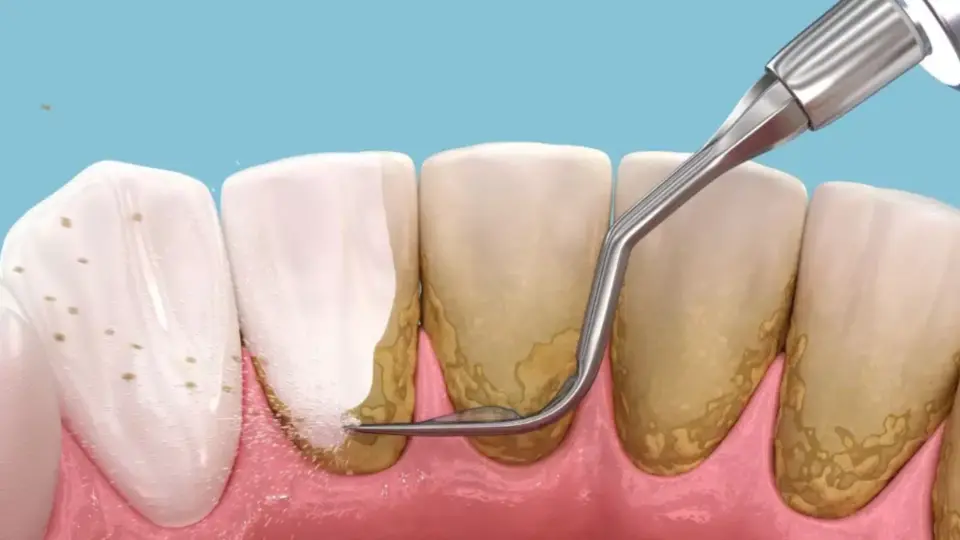Dental nerve damage can have various causes, ranging from trauma to infection, and recognizing its symptoms is crucial for prompt treatment. Common indicators include persistent pain, sensitivity to temperature changes, tingling or numbness in the mouth or face, and difficulty chewing or speaking.
By understanding these signs, you can take proactive steps to address potential nerve damage and safeguard your oral health. In this informative article, we’ll delve into each symptom, explore possible causes, and provide insights into seeking professional dental care. Stay informed and empowered to protect your smile by learning to recognize the early signs of dental nerve damage.
What Are The Common Indicators Of Dental Nerve Damage That Individuals Should Be Aware Of?
Dental nerve damage can manifest in various ways and affect individuals differently. It can be a concerning issue, affecting your oral health and overall well-being. Being aware of the common indicators is essential for timely intervention and treatment. Here are the key signs to watch out for:
- Persistent Pain: Sharp or throbbing pain in the teeth, jaw, or gums that persists over time.
- Sensitivity to Temperature Changes: Increased sensitivity to hot or cold foods and beverages, often causing discomfort.
- Tingling or Numbness: Unusual sensations like tingling or numbness in the mouth, lips, or face, indicating potential nerve involvement.
- Difficulty Chewing or Speaking: Challenges in chewing food or articulating words due to nerve-related issues.
If you notice any of these symptoms, it’s crucial to seek professional dental care promptly. Ignoring dental nerve damage can lead to further complications, including tooth loss and impaired oral function. Your dentist can conduct a thorough examination, diagnose the problem, and recommend appropriate treatment to alleviate discomfort and restore oral health.
Remember, early detection and intervention are key to preventing long-term complications and maintaining a healthy smile. Don’t hesitate to reach out to your dentist if you have any concerns about dental nerve damage. Your oral health is worth prioritizing!
How Do Dental Professionals Typically Diagnose Dental Nerve Damage Symptoms?
When you visit a dental professional with symptoms that suggest nerve damage, they will begin with a thorough examination of your mouth and teeth. This involves looking for visible signs of damage or decay affecting the nerves. X-rays or other imaging techniques might be used to get a deeper look at the structures of your teeth and jaw, identifying any hidden issues.
Dental professionals also rely on your description of the symptoms. They may ask about the onset, duration, and intensity of pain or sensitivity, as these details can provide clues about the extent of the nerve damage.
In some cases, specialized tests that measure the nerve’s response to stimuli may be employed to assess the health and function of the dental nerves.
Are There Specific Risk Factors Or Dental Procedures That Increase The Likelihood Of Experiencing Dental Nerve Damage Symptoms?
Certain risk factors and dental procedures are known to increase the likelihood of experiencing dental nerve damage. High-risk factors include severe dental decay, gum disease, and trauma to the teeth or jaw, such as from an accident or sports injury. These conditions can expose or damage dental nerves, leading to the symptoms discussed.
Specific dental procedures can also pose a risk for nerve damage. Tooth extractions, especially wisdom teeth, and root canal treatments involve manipulating the teeth and surrounding tissues, sometimes affecting the nerves. Dental implants, which require drilling into the jawbone, also carry a risk of nerve damage if not done with precision.
Practicing good dental hygiene and seeking timely treatment for dental issues can significantly reduce the risk of developing nerve damage. Additionally, discussing the potential risks of any dental procedure with your dentist can help you make informed decisions and take necessary precautions.
What Treatment Options Are Available For Individuals Experiencing Symptoms Of Dental Nerve Damage?
The treatment for dental nerve damage depends on the underlying cause and the severity of the symptoms. In cases where a specific dental issue, such as decay or infection, is causing nerve pain, treating that issue can alleviate the symptoms. This may involve fillings, root canals, or other restorative procedures.
For nerve damage that results in chronic pain or sensitivity, your dentist might recommend medications to manage the symptoms. These can include pain relievers, anti-inflammatory drugs, or medications to alleviate nerve pain.
In some situations, physical therapy or acupuncture is suggested to help manage pain and encourage nerve healing. Additionally, advancements in dental technology have introduced new treatments, such as laser therapy, which can promote nerve regeneration and healing.
Hence, dental nerve damage can present through various symptoms, each pointing to the need for a professional evaluation. Understanding these indicators, the diagnostic process, the risk factors, and the treatment options can empower individuals to seek timely intervention.
Remember, preserving your dental health is not just about maintaining a beautiful smile; it’s about ensuring the well-being of your entire body.
Why Cascade Dental Is Your Go-To for Managing Dental Nerve Damage
At Cascade Dental, we understand dental nerve damage’s impact on your life, from persistent discomfort to the constant search for relief. Our dedicated team of dental professionals is equipped with the knowledge, experience, and cutting-edge technology needed to diagnose and treat dental nerve damage effectively. Cascade Dental is your best choice for managing and treating dental nerve damage symptoms.
Expert Care With a Personal Touch
At the heart of Cascade Dental is a team of experienced dentists and dental specialists who excel in their field and provide care with empathy and understanding. We believe in treating our patients like family, ensuring a comfortable and reassuring experience from the moment you enter our clinic. Our approach combines the latest in dental technology with personalized care plans tailored to address your needs and concerns, ensuring the best possible outcomes for your dental health.
Advanced Diagnostic and Treatment Options
Cascade Dental prides itself on staying at the forefront of dental technology. Our clinic is equipped with state-of-the-art diagnostic tools, including digital X-rays and 3D imaging, which allow for precise identification of nerve damage and its causes. We offer a comprehensive range of treatment options, from conventional therapies to innovative solutions like laser therapy for nerve repair. We aim to provide effective treatment while minimizing discomfort and promoting quick recovery.
Commitment to Education and Prevention
Prevention is just as important as treatment. Cascade Dental is committed to educating our patients about dental health and how to prevent nerve damage. During your visit, we’ll share tips on maintaining optimal dental hygiene, discuss the impact of diet on dental health, and recommend protective measures to avoid injury and wear. We aim to empower you with the knowledge to maintain a healthy smile and prevent future issues.
Transparent Pricing and Financial Options
Understanding the cost of dental care is essential, and at Cascade Dental, we strive for transparency in all our pricing and financial options. We offer detailed consultations to discuss your treatment options and associated costs, ensuring there are no surprises. Additionally, we provide a variety of payment plans and accept most major insurance plans, making it easier for you to receive the care you need within your budget.
Frequently Asked Questions
Q: How long does treatment for dental nerve damage take?
A: The duration of treatment can vary based on the severity of the damage and the type of treatment required. Some treatments may provide relief after just one visit, while others may require several sessions. We’ll provide a tailored treatment plan with estimated timelines during your consultation.
Q: Is treatment for dental nerve damage painful?
A: At Cascade Dental, we prioritize your comfort. We use the latest techniques and anesthetics to minimize discomfort during and after treatment. Most patients report little to no pain during the recovery process.
Q: Can dental nerve damage heal on its own?
A: While minor nerve irritations can sometimes heal without intervention, significant nerve damage typically requires professional treatment to prevent the worsening of symptoms and promote healing.
Ready to Take the Next Step? Schedule Your Consultation Today!
At Cascade Dental, your dental health is our top priority. If you’re experiencing symptoms of dental nerve damage, don’t wait for the condition to worsen. Our team is ready to provide expert care, advanced treatment options, and the support you need to regain your comfort and well-being. Contact us now!


